Interview: Sean Muir talks about the future of the NRS
The tough road ahead for Australia's domestic racing series
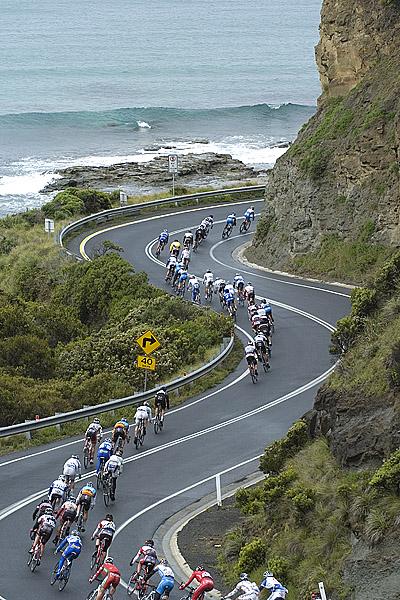
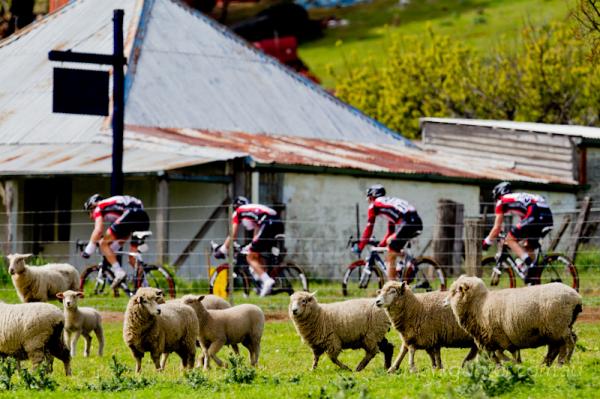
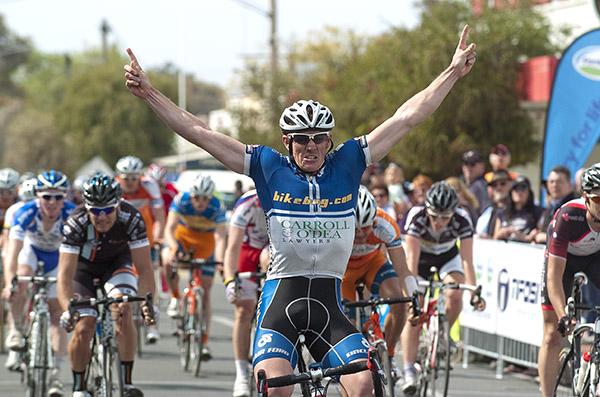
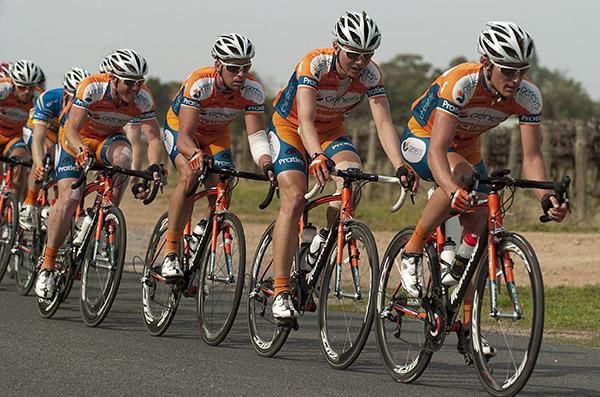
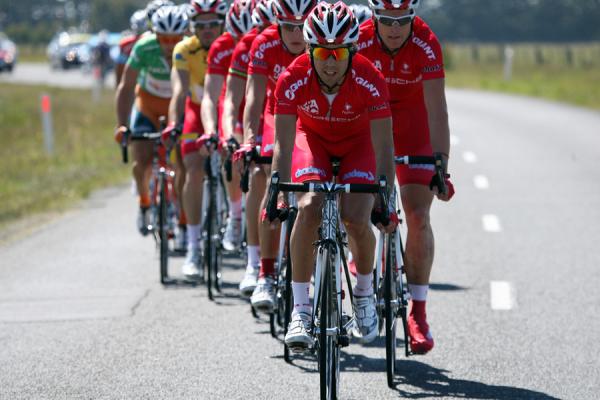
Sean Muir is the road program coordinator for Cycling Australia, and among other things is charged with the difficult task of improving the standing of the domestic racing scene in Australia. Muir's biggest project to this end is the National Road Series, which both he and Cycling Australia hope will grow into a concrete development pathway for the next generations of cyclists, in extension to the existing, though limited AIS high performance program.
In 2011 we've seen a number of riders graduate successfully from the NRS which is no doubt a positive sign, but the series is still young, and by Muir's own admission is far from perfect. Muir talked to Cyclingnews about the NRS's current state, the transformation that has taken place already, and its future.
AH: What would you describe to be the mission statement of the NRS, and do you believe it is fulfilling it at the moment?
SM: The goal of the NRS is to create a breeding ground for cyclists to step through from the domestic scene to forging professional careers overseas. We are finding there are a lot of riders who are reaching a point in time where they they fell they need to go overseas, perhaps prematurely. We want to help them get overseas, but we also think we can provide a stronger platform here to allow riders to stay in Australia longer.
We're working with promoters, teams and the riders to create an atmosphere which they are keen to compete in. We're looking to build the series in every aspect to draw the riders and the teams and of course the sponsors along with it.
AH: If you contrasted the structure of the national calendar today, to that of say a decade ago, what have been the major changes in that period?
SM: I think that ten years ago there were a lot of one-off promoters out there. Now Cycling Australia has taken a little bit more of a directive approach. We sat down with five of the major promoters just last Friday, for many of them that was the first time they'd met eachother. We discussed the direction of the NRS and that's something that's never taken place before, and it can only do good to the series. I think if we can continue to work towards bringing together everyone's expertise and ideas we can create a better product.
Get The Leadout Newsletter
The latest race content, interviews, features, reviews and expert buying guides, direct to your inbox!
The level of racing, the quality of the teams, the depth, and the financial side have all improved significantly in recent years. I think the gap between the top and bottom is closing as well, which is making the quality of racing better for both riders and spectactors.
AH: How do you and they see the series changing in the next ten years? What are at least the short-term steps that you will be implementing to further professionalise the series?
SM: One of the big changes already implemented in terms of a new direction was the inaugural women's series which kicked off last year. We're also finding there's a shift towards more team focused racing. With both the men's and women's events we've made all NRS events team based, and done away with the individual entry system [formerly anyone could enter NRS level events, now you must enter as part of a registered team - this guarantees a certain standard to the racing]. That has gone ahead leaps and bounds in the men and the women's series had seven teams at the start of this year which was positive, but we're looking to build on that.
Cycling Australia has also recieved a 'women in sport grant' from the Australian Government which will mean the women's series will be broadcast next year.
We're also working with promoters to bring in minimum standards for racing at the NRS level, so that teams, riders, spectators can expect a minimum level of service. Things like convoy support, medical service, neutral mechanics. We're looking to bring all those things across the board.
We're in the process of drafting a policy document at the moment and I think there are plenty of areas that can be streamlined.
AH: Scott Sunderland mentioned earlier this year that he would like to see a compulsory team participation in all events, is that something that is in the pipeline?
SM: From our point of view we would love to see that happen. If we had 20 teams register at the start of the year and all 20 were able to take part in every event. But at the moment I don't see that as possibility, at least in the next 12 months. There are so many small teams that can put up there hand to take part in half the calendar, but don't have the budget to double that.
We had a couple of new teams come on this year, Erdinger and John West and they went to a number of races which helps build the series. We have to be cautious though to not make the barrier of budgetary requirements too big too quickly. It is something we're working on though.
AH: To what extent have you looked at other sports within Australia's models? Does the AFL, NRL or the A-League offer a template worth pursuing?
SM: In planning meetings we've definetely looked at their models. The A-League managed to go along way in a short period of time, particularly in now attracting high calibre athletes to the League, and they've managed to win an impressive TV rights deal.
AH: Is that something that the NRS can pursue?
SM: When the TV rights deal came up for re-negotiation a couple of years ago Cycling Australia went out to the market to see what interest there was for the NRS. At the time however there wasn't much out there. I think then at the time the NRS was still seen unfairly or not as not a particularly cohesive series as we discussed before. Again as we further professionalise the series I think that we can change that.
In terms of other funding sources Cycling Australia is looking to finalise an overall sponsor deal for next year. At least a part of that will go to helping events, and hopefully to helping teams get to events.
AH: Can some funds from the high performance programs or the national team program be re-allocated to the NRS instead?
SM: The high performance program's funding is seperate and comes from directly from the Government. Those funds then have to be used in the AIS program and the national team programs, which is unfortunate for us, but it's not an option to pursue, I've tried!
We are continuing to pursue grants from the Australian Sports commision directly though. We've been working hard to bring on additional funding sources for the last three years, since I've been involved and with the women's grants and the overall sponsorship deal set to be announced we're moving in the right direction.
AH: There's been talk in some circles that the focus on criteriums and the lack of hillier style races on the NRS creates a one-dimensional development platform, is that something that worries you at all?
SM: I think you've got to work with what you've got. At the Tour of Toowoomba this year, partly because of the flooding, but also to address just that organisers went out and looked for some climbs in the surrounding areas to make the race more challenging. I think a lot of promoters are looking to extend the distance of stages wherever possible even if climbs aren't forthcoming.
There are climbs in Victoria, and Tasmania's great for climbing. But there's certainly a case there, and I think promoters are working to address it.
AH: Do you think a National Road Series is incomplete without the inclusion of two of Australia's biggest races, the Sun Tour and the Tour Down Under?
SM: This year all the continental teams [Drapac, Genesys, Budget Forklifts, V Australia, Jayco-AIS] were part of the Sun Tour. We're trying to get more teams registered at the continental level, and we're assisting teams in that process, which is quite complex. For Sun Tour you need that registration to compete.
We've tried very hard to get the UCI to change their regulation with regard to the Tour Down Under, but they haven't budged.
One thing we are working on though is to get a few more UCI events within Australia. At the moment in the Oceania region as a whole there's only the Sun Tour and the Tour of Wellington. If we can expand our UCI event calendar in Australia it makes it more attractive for teams to go to sponsors saying we need X budget to compete at these globally rated races.
That would be in addition to the exisiting NRS series, we wouldn't want to exclude teams on the NRS based on not being able to qualify for UCI events, but it would create a pathway for riders and the bigger domestic continental teams to expand their Australian racing calendar.
AH: Sean Muir, thanks for taking the time to talk to Cyclingnews.
SM: A pleasure Alex, thanks for taking an interest.
Alex Hinds, Production Editor
Sydney, Australia
Alex Hinds is a graduate of Economics and Political Science from Sydney University. Growing up in the metropolitan area of the city he quickly became a bike junkie, dabbling in mountain and road riding. Alex raced on the road in his late teens, but with the time demands of work and university proving too much, decided not to further pursue full-time riding.
If he was going to be involved in cycling in another way the media seemed the next best bet and jumped at the opportunity to work in the Sydney office of Cyclingnews when an offer arose in early 2011.
Though the WorldTour is of course a huge point of focus throughout the year, Alex also takes a keen interest in the domestic racing scene with a view to helping foster the careers of the next generation of cycling.
When not writing for Cyclingnews Alex is a strong proponent of the awareness of cyclists on the road in Sydney having had a few close run-ins with city traffic in the past.